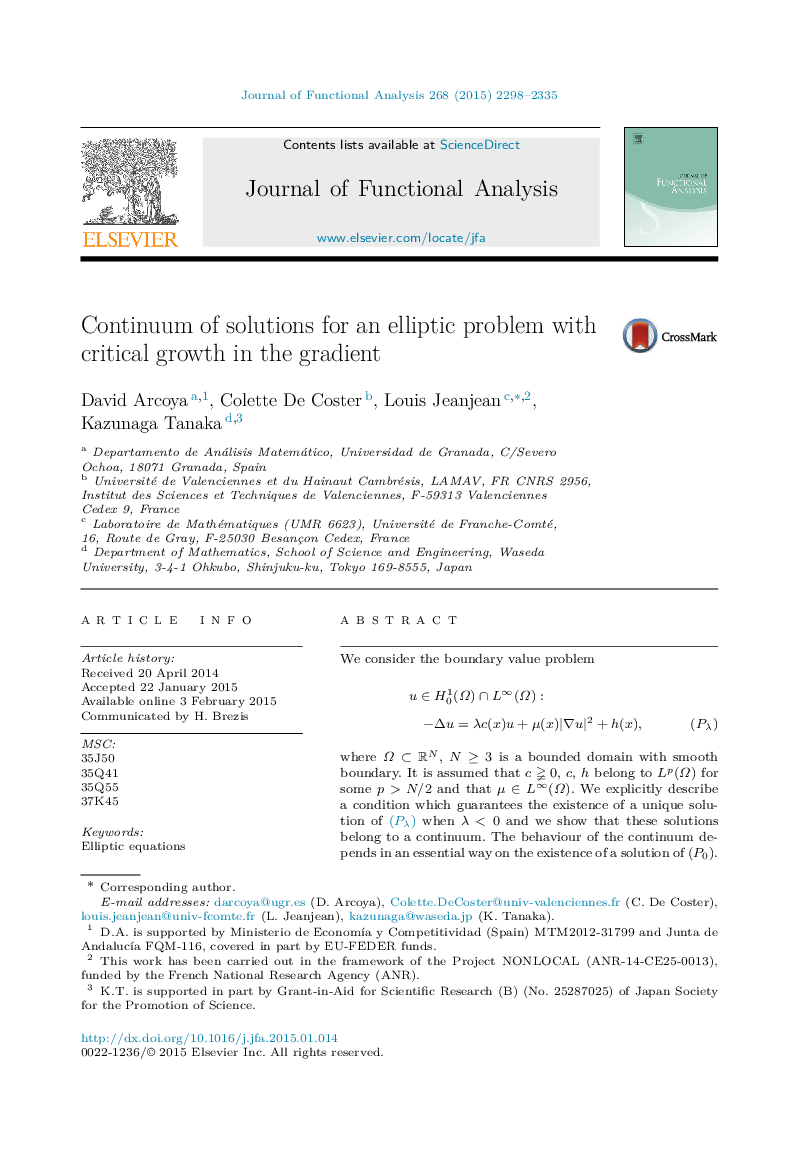| Article ID | Journal | Published Year | Pages | File Type |
|---|---|---|---|---|
| 4589895 | Journal of Functional Analysis | 2015 | 38 Pages |
We consider the boundary value problemequation(PλPλ)u∈H01(Ω)∩L∞(Ω):−Δu=λc(x)u+μ(x)|∇u|2+h(x), where Ω⊂RNΩ⊂RN, N≥3N≥3 is a bounded domain with smooth boundary. It is assumed that c≩0c≩0, c, h belong to Lp(Ω)Lp(Ω) for some p>N/2p>N/2 and that μ∈L∞(Ω)μ∈L∞(Ω). We explicitly describe a condition which guarantees the existence of a unique solution of (PλPλ) when λ<0λ<0 and we show that these solutions belong to a continuum. The behaviour of the continuum depends in an essential way on the existence of a solution of (P0)(P0). It crosses the axis λ=0λ=0 if (P0)(P0) has a solution, otherwise it bifurcates from infinity at the left of the axis λ=0λ=0. Assuming that (P0)(P0) has a solution and strengthening our assumptions to μ(x)≥μ1>0μ(x)≥μ1>0 and h≩0h≩0, we show that the continuum bifurcates from infinity on the right of the axis λ=0λ=0 and this implies, in particular, the existence of two solutions for any λ>0λ>0 sufficiently small.
